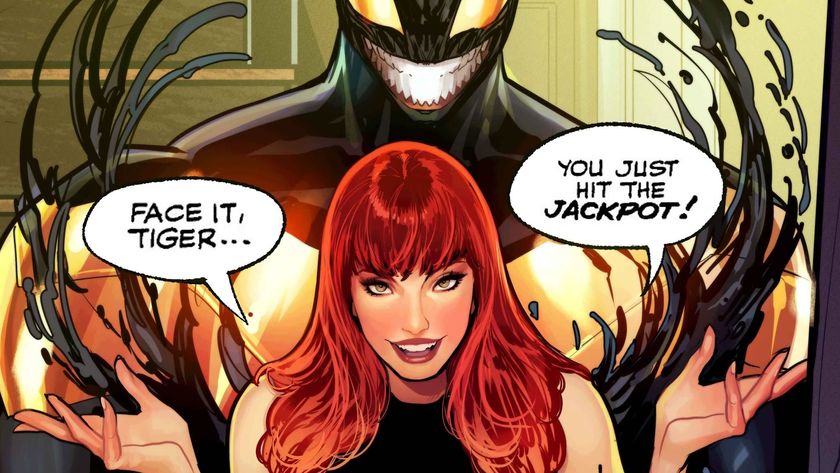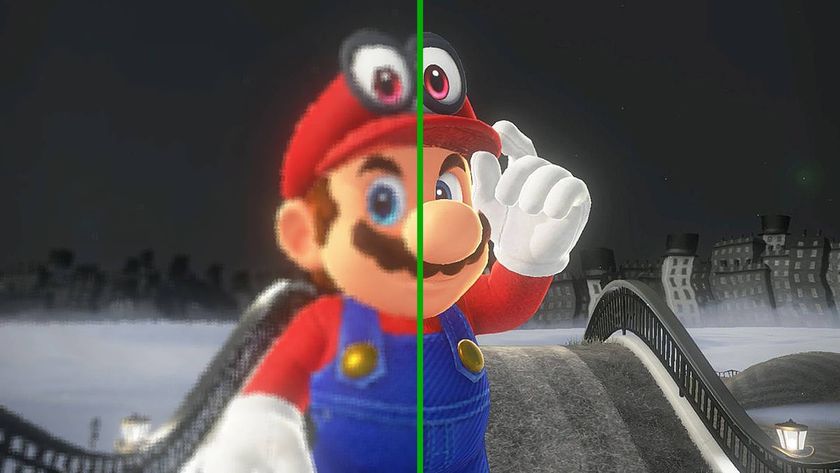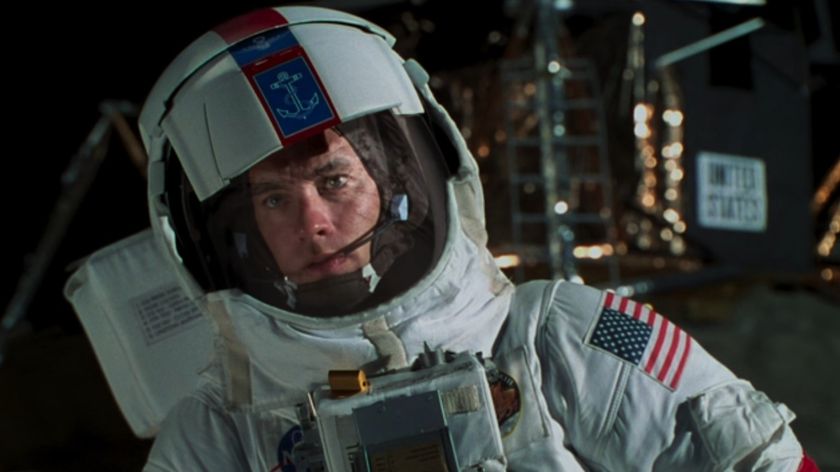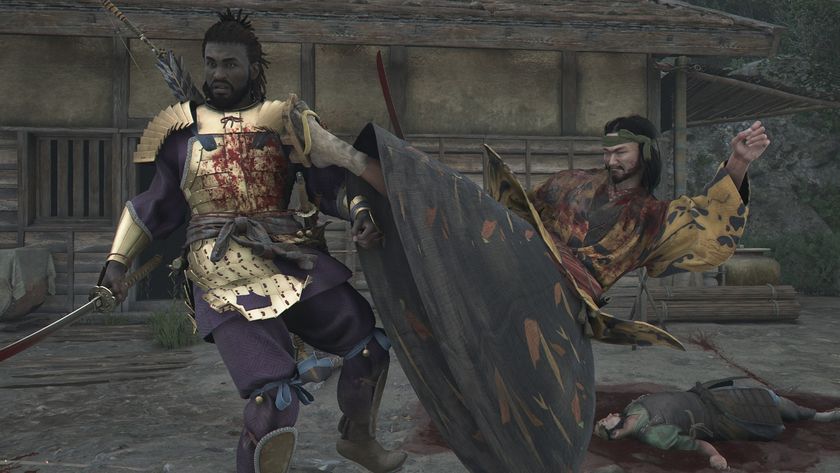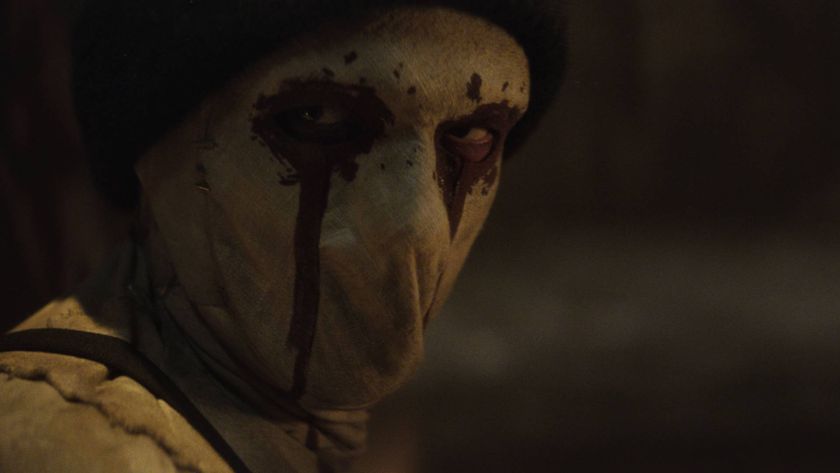Who is Lashana Lynch playing in the post-credits scene of The Marvels? Binary in Marvel Comics explained
Carol Danvers' alter-ego shines brightly
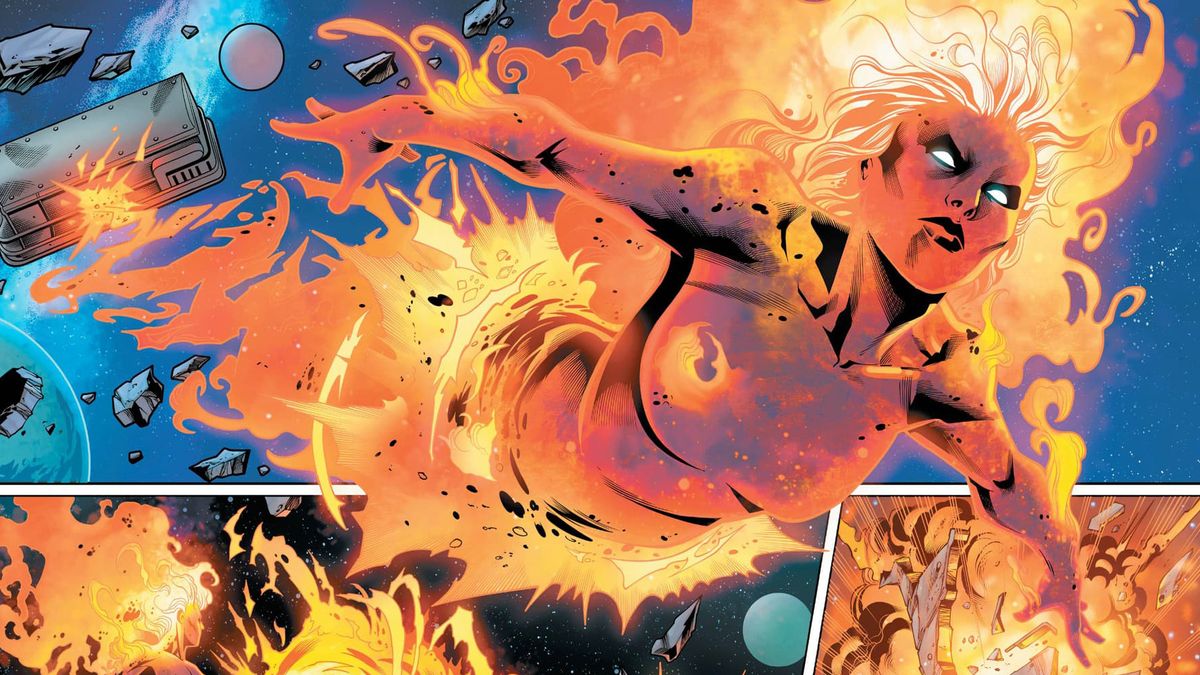
The Marvels is here - and with it comes a pair of reality-shattering cameos. Spoilers ahead.
In the last act of the film, a hole has been torn in reality by the Quantum-Bands and only Monica Rambeau can save the day. She selflessly flies into the rift and seals it, but is left trapped on the other side and in another dimension, perhaps forever.
That's not the last we see of her in the movie, however. In The The Marvels post-credits scene she wakes up on a hospital bed and finds herself face-to-face with a woman who appears to be her mother, Maria Rambeau, as played by Lashana Lynch.
In Monica's reality, her mother is dead. In this alternative universe, however, she's very much alive - and wearing an outfit that will be familiar to comics fans. This is Binary, a cosmic character with the powers of a star.
Binary has a rich history in the Marvel comics, so join us now as we look back at the origins and powers of this galactic hero, and how she fits into the Captain Marvel story so far.
Carol Danvers IS Binary
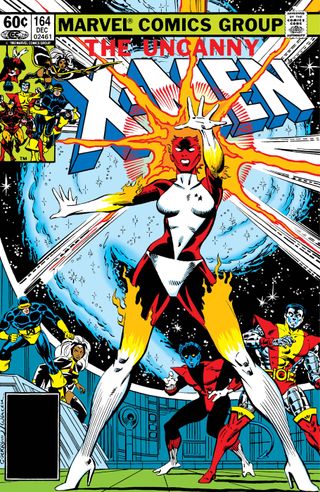
Before there was Binary there was Carol Danvers, though she was not yet going by the Captain Marvel name. Carol has had her powers stolen by the mutant Rogue (still a baddy at this point) and given up her Ms. Marvel alias. She's kidnapped by the alien Brood who start experimenting on her. Their genetic tinkering, however, has an unexpected side effect - it unlocks new powers within Carol and transforms her into a burning golden figure, "like a butterfly emerging from its chrysalis."
This first version of Binary can generate heat, light, radiation, gravity and she has incredible perceptive skills. What she doesn't have is patience. When she learns that Storm is in danger she blasts out of the X-Men's spacecraft to go and rescue her friend… accidentally tearing a hole in the side of the ship in the process and blasting the X-Men out into space! (Don't worry, they're fine.)
Comic deals, prizes and latest news
Get the best comic news, insights, opinions, analysis and more!
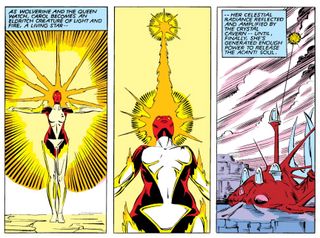
The Carol Danvers version of Binary is around for a good while, though she never formally joins the X-Men.
She gets to fight Rogue again in Uncanny X-Men #171, this time punching the now repentant mutant into the stratosphere. This does not go down well with Professor X, so Carol leaves the mutants behind and goes off to join the Starjammers - a band of space pirates led by Cyclops' dad, Corsair.
It's while she's with the Starjammers that she first meets Monica Rambeau, the second Captain Marvel. Yes, in the comics Carol Danvers is actually the seventh hero to take that title, with Monica having predated her by many years.
Carol's time as Binary comes to an end in Quasar #34. A Shi'ar Nega-Bomb threatens life on Earth. Carol helps stop it, but loses her powers in the process.
Birth of the Binary clone
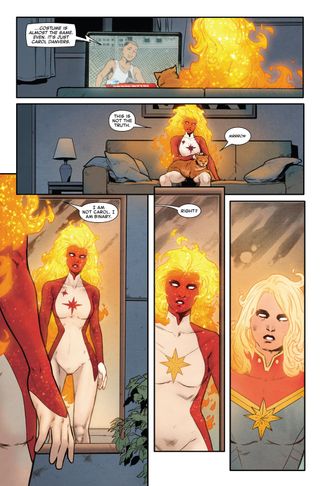
The version of Binary that will be more familiar to modern readers emerged as recently as 2021, in Captain Marvel #34 by writer Kelly Thompson (who is currently writing DC's brilliant new Birds of Prey) and artist Sergio Dávila.
The alien Vox Supreme has captured Danvers (now firmly going under the Captain Marvel name) and imprisoned her in a power-resistant cage before blasting her into space. To escape, Carol focuses her powers and creates an energy form based on Binary. This helps break her out of the prison before being reabsorbed by Danvers.
She tries the same trick again a few issues later, when Vox Supreme tries to trap Cap in a suit that would allow him to control her. Danvers creates her Binary form again, but this time it doesn't simply vanish. Instead, it becomes an entirely separate entity who holds some of Carol's memories and eventually goes on to become a hero in her own right.
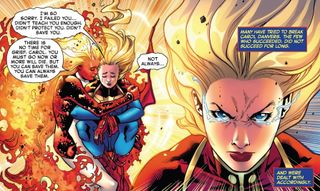
Alas, this Binary shines brightly but only briefly. In Captain Marvel #48 the Binary clone is killed while fighting the Brood Empress.
Binary in the MCU
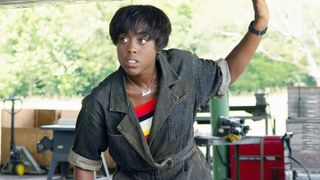
Although we only share a couple of minutes with Maria Rambeau/Binary at the end of The Marvels it's clear that this is going to be a quite different take on the character.
We don't yet know her powers, or even if she's going by the name Binary at all - though the the twin stars on her suit certainly suggest as much.
Where will we see her next? Well, it's not out of the question that she might appear in next summer's Deadpool 3 which we already know will feature several mutants, not least Ryan Reynolds' title character! He will be joined by Hugh Jackman as Wolverine, Stefan Kapičić as Colossus, Brianna Hildebrand as Negasonic Teenage Warhead, and Shioli Kutsuna as Yukio. Could Lashana Lynch be back for that?
Alternatively, she could be a part of the X-Men film that is currently in development. That has yet to be publicly assigned a release date and it currently looks like it won't drop until 2026 at the earliest.
Still, Marvel Studios are full of surprises, and it's equally possible that Maria/Binary might show up in a movie or Disney Plus TV show well before then. Whatever the case we can't wait to see her in action and shining like a star.
The Marvels is in cinemas now.
For more on The Marvels, check out our spoiler-heavy deep dives in the links below.
- When does The Marvels take place on the Marvel timeline?
- The Marvels ending explained
- All of The Marvels Easter eggs and MCU references
- All of The Marvels cameos - listed and explained
- What team is Kamala Khan recruiting for at the end of The Marvels?
- How does The Marvels ending set up Deadpool 3?
- Breaking down Kelsey Grammer’s Beast cameo in The Marvels
- The comics that influenced The Marvels, according to Nia DaCosta
- Nia DaCosta explaining The Marvels’ “lighter, softer” Fury
- The Marvels director weighing in on whether or not you need to have watched the TV shows beforehand
- The MCU movies and shows to watch before The Marvels
- How many Captain Marvels are there in Marvel Comics
- Ms. Marvel: The powers and comic book origins of Kamala Khan
- The comic book history of Monica Rambeau

Will Salmon is the Comics Editor for GamesRadar/Newsarama. He has been writing about comics, film, TV, and music for more than 15 years, which is quite a long time if you stop and think about it. At Future he has previously launched scary movie magazine Horrorville, relaunched Comic Heroes, and has written for every issue of SFX magazine for over a decade. He sometimes feels very old, like Guy Pearce in Prometheus. His music writing has appeared in The Quietus, MOJO, Electronic Sound, Clash, and loads of other places and he runs the micro-label Modern Aviation, which puts out experimental music on cassette tape.

